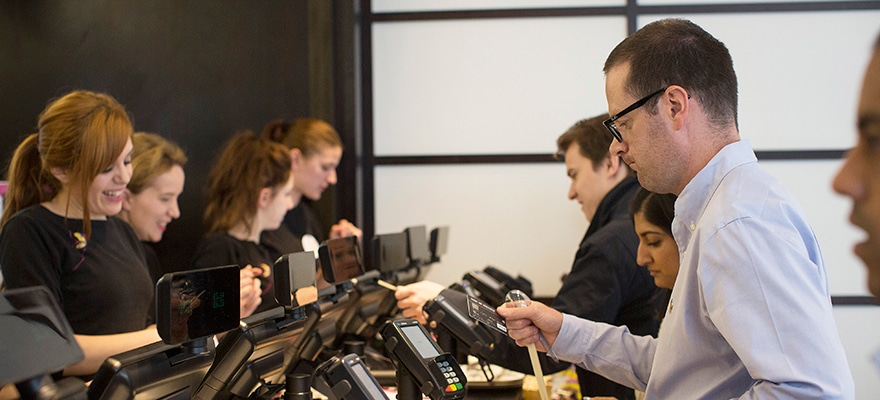A Bitcoin Cash-focused research centre has purchased a majority stake in a company that offers a Bitcoin Cash mobile wallet. This is significant because the latter offers contactless Payments with Bitcoin Cash.
The research centre is called nChain, and the mobile wallet is called HandCash. The latter was founded in Spain, and it uses near-field technology to facilitate instant cryptocurrency payments.
nChain CEO Jimmy Nguyen said: "For Bitcoin Cash to grow, user interfaces need to become better and easier to use. We are impressed with HandCash and its vision for simplifying the Bitcoin Cash transaction process to a contactless approach."
HandCash co-founder Alex Agut said: "Bitcoin was conceived to be peer-to-peer electronic cash. We wondered why Bitcoin was not being used like cash. That gave us the idea to create a wallet application that allows you to send Bitcoin in a way that resembles handing someone cash, by merely placing a sender's mobile device close to the recipient's device. That's why we named our project HandCash. We also knew the application could only work on Bitcoin Cash, with its low fees and instant confirmations."
nChain is a company that promotes, in its own words, "Bitcoin Cash as the true Bitcoin". To this end, it promotes the use of Blockchain technology via "open source, royalty-free software tools". It employs around 60 scientists, engineers, and researchers, notably including Craig Wright, the Australian computer scientist who claims to be Satoshi Nakamoto.
The company's blog page heavily features posts by and about Wright, and includes one entitled "A Wheelbarrow of Academic Achievements". It is a video of Wright proving to a crowd that he is in fact qualified by showing them his certificates, which are brought to the stage in an actual wheelbarrow.
One's opinion of nChain will thus likely correlate with one's opinion of Wright and Bitcoin Cash. I feel it is relevant to mention that a May 2017 article in Hackernoon notes that the nChain website is not secure; one year later it still isn't.
Bitcoin Cash is a spinoff of Bitcoin. In many ways, it is a more useful cryptocurrency because it can be used to purchase cheap things, unlike its parent, but it is criticised by many because of its contentious claim of being the true Bitcoin. Bitcoin Cash advocates will insist on referring to Bitcoin as 'Bitcoin Core'.
The figurehead of Bitcoin Cash is a man called Roger Ver. Ver owns a website called Bitcoin.com and is currently facing a lawsuit over claims that the website is fooling people that wanted to buy Bitcoin into buying Bitcoin Cash by misleading labelling.
Controversy aside, this is not the first time that NFC technology and cryptocurrency have met. In April we reported on a developer who is working on making contactless Bitcoin payments possible by using NFC chips and the Lightning Network. The latter is a system which enables fast and small-scale Bitcoin payments. It was first used for a real payment in January 2018.


















